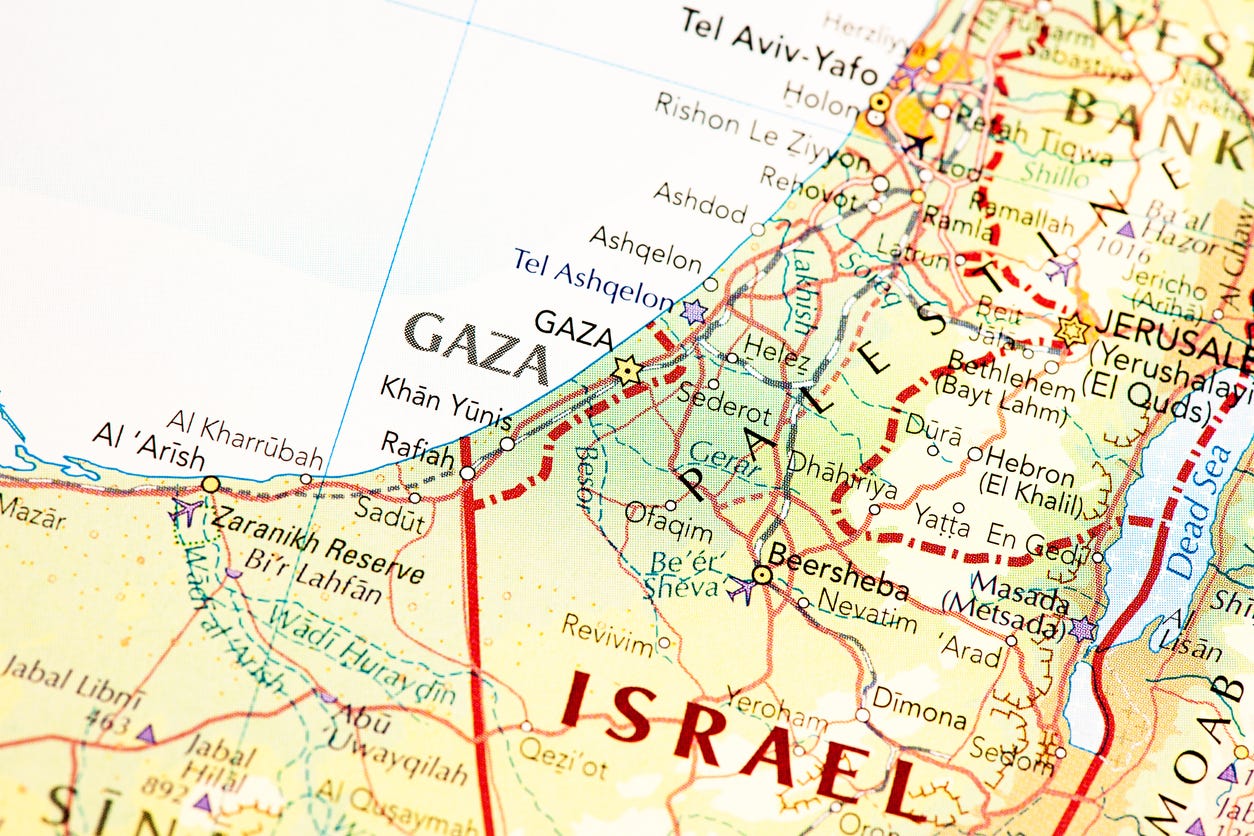(2/3) What Americans Really Think about the Israel-Hamas War
Part 2 of 3: WHAT ALL AMERICANS THINK--AND WHOSE SIDE THEY'RE ON

Last week, I delved deep into the campus protests over the Gaza War. I looked at who is organizing and joining the protests, what really motivates them, and how they compare with earlier generations of protesters. (See “(1/3) What Americans Really Think about the Israel-Hamas War.”)
This week, I’m going to delve again, this time into an even deeper topic: what all Americans think about the Gaza War specifically and about the Israel-Palestinian conflict in general. How much do they care or know about it? Whose side are they on? How do they expect it will turn out? How do their opinions break out by subgroup—for example, by race/ethnicity, education, political party, or religious affiliation? Also, near the end, I’ll look at how Americans’ opinions of the conflict differ by age group or generation.
One of my first findings, as you will soon find out, is that most Americans don’t rank the war very high in their list of “important” issues and thus don’t follow it closely. But just because most Americans don’t care much about this war (or about the Russia-Ukraine war), that doesn’t mean you shouldn’t care about it. Americans rarely care about foreign conflicts that don’t directly affect them. History shows, however, that such hostilities often furnish the sparks of global conflagrations. Not many Americans, it turns out, cared much about Japan’s invasion of China in 1936 or Germany’s invasion of Poland in 1939. And we all know where that led.
What’s more, even if most Americans don’t follow the war closely, a great many have strong beliefs about it—strong enough, perhaps, to affect the outcome of the 2024 election. Think of this essay as an exploration of these beliefs, in all of their multi-layered complexity.
I cite many opinion surveys in this piece. Two excellent surveys will come up several times, so let me call them out in advance: the Pew Research Center report released on March 21 (which I’ll call the Pew 2024 survey); and the Harvard-Caps Harris poll released on May 20 (which I’ll call the Harris 2024 survey).
So let’s take a deep breath—and dig in.
For most Americans, the Israel-Hamas war is not an important issue.
This is an important level-setter. According to Gallup’s most recent poll, only 2% of Americans say this war is America’s “most important” issue (compared to 28% for immigration, 11% for inflation, or 6% for poverty/homelessness). When allowed to mention multiple issues as important, the Harris 2024 survey still reports the war coming in at 13th place (at 7%). In the Quinnipiac poll, only 7% of registered voters rank international conflicts in general as “the most urgent issue facing the country today.” Which issues “affect me personally”? Asked this question by the Harris 2024 survey, 42% of Americans mentioned inflation, 11%. crime, 8% climate change, and 3% (dead last, in 9th place) the Israel-Hamas war.
These results shouldn’t surprise us: For better or worse, few Americans have ever paid much attention to a foreign war until it directly affects their lives or their pocketbooks. Campus protests or not, this was the case in Korea, in Vietnam, and even in our more recent post-9/11 wars in the Mideast. But not here. Not yet, anyway.
Accordingly, a large share of Americans (especially of young Americans) don’t follow news about the war and don’t know much about it.
According to the Pew 2024 survey, 43% of Americans say they follow the war not too much/not at all. Only 22% follow it extremely/very closely. Among Americans under age 30, the not-too-much share rises to 58%; the very-closely share falls to 14%. Among seniors, by contrast, the numbers are reversed: 22% not-too-much and 35% very closely. The Harris 2024 survey reports comparable numbers.
And yes, as you might imagine, knowledge about the war follows a similar pattern. Those who care, get informed. Pew gave respondents a rather easy multiple-choice test consisting of three questions: Who is the Prime Minister of Israel? Who attacked Israel on October 7? And which side has thus far incurred a higher death toll—the Israelis or the Palestinians? Of all Americans under age 30, only 31% could answer all three questions correctly. Of all seniors, 54% could do that (nearly on par with four-year college graduates of all ages).
Given all of the campus protests, this age gap in interest and knowledge points to a remarkable fact:


